#justice for horatio
Explore tagged Tumblr posts
Text
if I was horatio id be so mad if hamlet told me not to kill myself imagine how many university assignments he’s missing after helping hamlets ass 😭😭🙏
49 notes
·
View notes
Text
i know he has to stay with hamlet because “good night, sweet prince,” but i like to think the ophelia from the 2018 movie grabbed horatio before she left and they escaped off into the countryside and he got to become a doctor and she decorated his practice with flowers and the two besties survived the cycle of vengeance together <3
#justice for horatio#he cared so much about her and the way he picked up that she was telling him to dig her up??? he was a real one#ophelia#horatio#hamlet#ophelia 2018#shakespeare
8 notes
·
View notes
Text

Let my people go.
(Nexus: Alien Justice #3)
#Nexus: Alien Justice#nexus#horatio hellpop#juda#Judah Maccabee#Judah the hammer#the hammer#let my people go#uh oh#iconic#the future#space opera#mike baron#steve rude#dark horse comics#comics#90s comics
21 notes
·
View notes
Text
actually there's no need to make this assignment any more complicated than it already is. horatio vs patroclus 'the lovers' epilogue' short story from 2021 revamped now ok?
#i have to do 7k words (4k creative 3k critical) and my extension isnt for as long as id like. my initial project is fun but im not in a#headspace rn to be able to do it justice and im needlessly panicking about it being perfect. i think it might be best to work with smth i#already have the groundwork for in the kind of layout i work best in (two characters yapping with minimum external description)#i stopped it in 2021ish because i found it a bit too fanfic-y for my tastes but. happy 2025 this is on cambridge for letting me in.#stay tuned :)#notnow#and tbf. fanficness aside. i was onto smth insofar as the actual foils went... horatio who resents patroclus being associated with him from#the moment he didnt actually have to deal with the aftermath of losing someone and got to simply 'jumpstart' the action instead#patroclus got to do the easy thing (die). horatio has to carry the epilogue#and yet theyre both often positioned as respective parallels/classical lovers in popular discourse. which i think is very fascinating#and comes with delightful interpersonal crossover implications#anyway. you can also tell this idea was old because i was still writing about men
18 notes
·
View notes
Text

#Captain Horatio Hornblower#Gregory Peck#Virginia Mayo#Robert Beatty#Terence Morgan#James Robertson Justice#Raoul Walsh#1951
2 notes
·
View notes
Text
I get to write an essay on Hamlet's characterisation for my first marked assignment teehee *giggling kicking my feet*
#i fucking love studying literature actually#shakespeare is my guy#i love getting excited about writing essays i feel like such a little nerd#hamlet#shakespeare#im meant to be sticking to the theme of revenge and how that shaped hamlets character but dya reckon i could get away with#sprinkling a little hamlet x horatio gay propaganda#somehow help me link their gayness to his obsession with revenge lmfao#my next essay is due after christmas and its a compartive essay between measure for measure and merchant of venice with the theme of justice#AND IMMA EAT THAT UP MAN#JUSTICE?? WITH THOSE TWO PLAYS?? IT PRACTICALLY WRITES ITSELF#SLAYING
10 notes
·
View notes
Text
I headcanon Horatio as autistic

Does anyone else see it? Bro literally misunderstands every single joke or figure of speech he hears. There are a number of other little traits too but I digress.
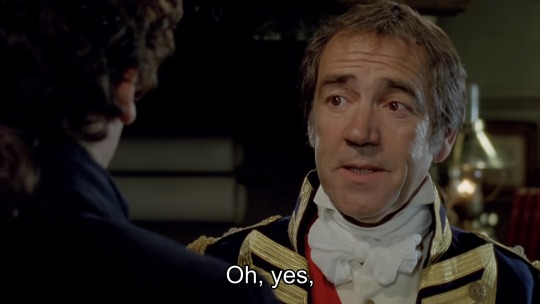
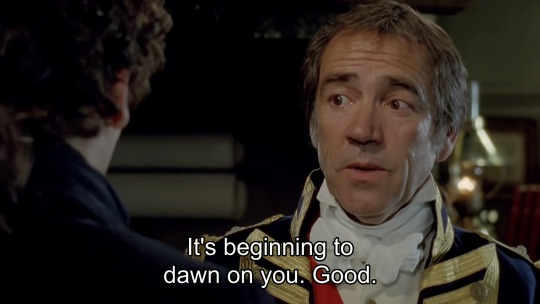
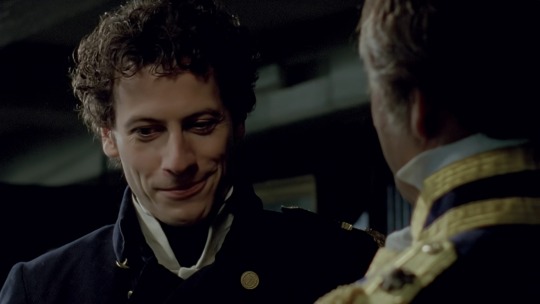
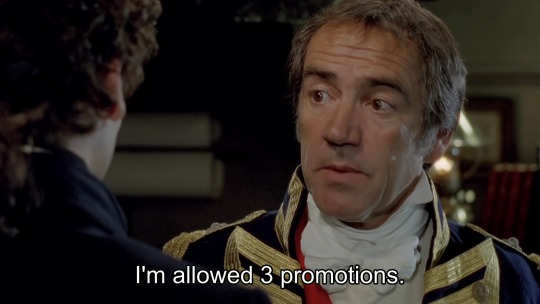
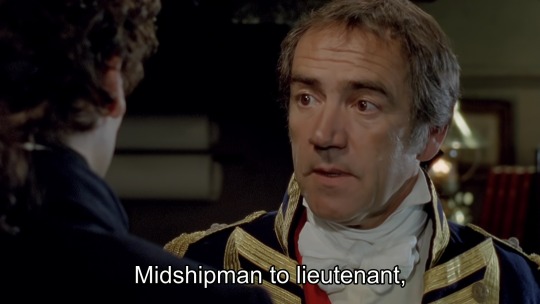
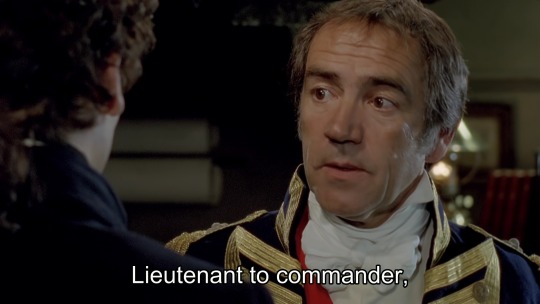
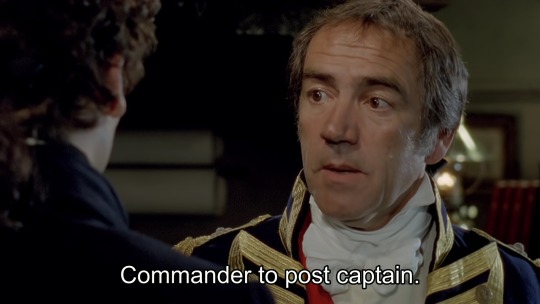
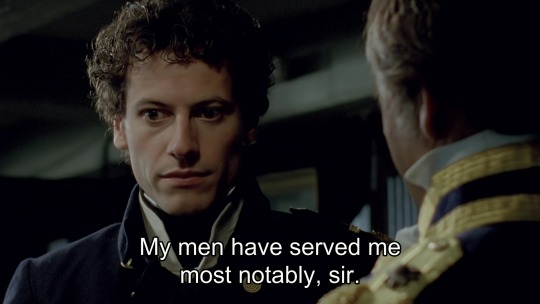
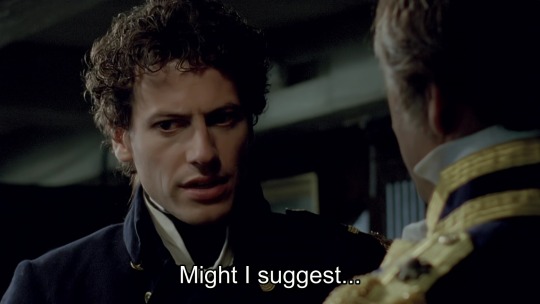
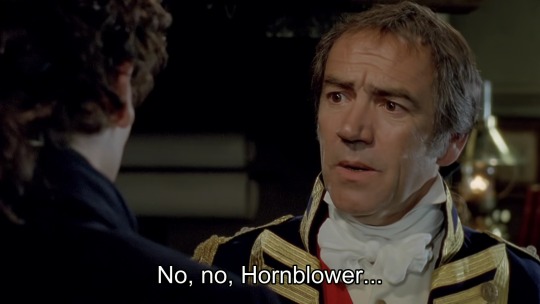
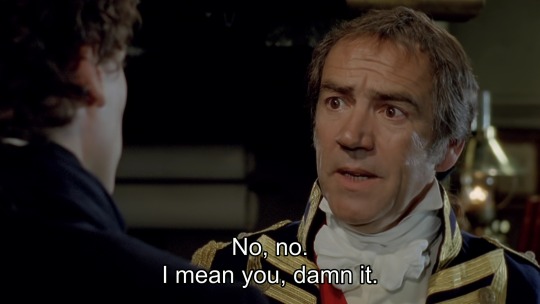
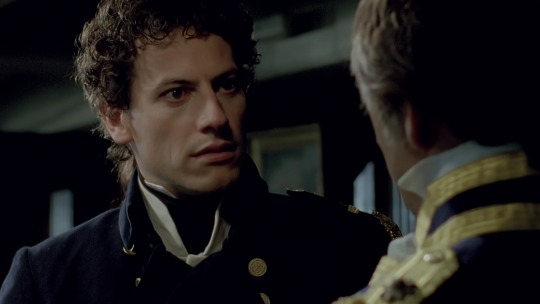
Captain Idiot, reporting for duty.
#hornbower#horatio hornblower#edward pellew#duty#I actually havent seen this episode yet shhhh its a secret#ok he also has a strong sense of justice#and remember his studying in episode 2? the BE QUIET part?
263 notes
·
View notes
Text
I feel like I haven't really seen the fe3h fandom talk too much about how clearly Azure Moon is an adaptation of Hamlet. Like not even subtly Hamlet (like, see, he's the lion king, get it, haha, because... It's Hamlet).
Dimitri is obvious; he's the prince whose uncle has become king, due to a conspiracy he's trying to uncover, spurred on by his murdered father's restless ghost. Pursuing this vengeance drives him mad, and he becomes increasingly erratic as vengeance continues to escape him.
Dedue is Horatio; Hamlet's best friend (but one he met more recently than his other friends), always at his side and loyal no matter how far Hamlet falls, but formal with him right up until Hamlet dies for his revenge. Crimson Flower Dedue practically delivers the "Goodnight, sweet prince" line in the game if you defeat him before he can transform himself.
The rest spends a lot of effort making subversions; Rufus is Claudius, and this is played straight in Three Hopes, where Dimitri gets justice before he loses his mind and so he never reaches the depths of despair he does in Azure Moon. But in Three Houses this gets subverted; Rufus is still actually the Claudius, but Dimitri has miscast Edelgard in the role. This also allows Patricia to serve as Gertrude, forcing Dimitri to grapple with whether his (step)mother was complicit in his father's murder and whether she has more loyalty to the murderer than to him. Rufus then shifts into the Polonius role, as it's after his death (allegedly at the hand of Dimitri himself) that everything starts going to shit.
Felix, meanwhile, I think is Laertes (with Glenn and Rodrigue serving as Ophelia and Polonius for him (side side note I personally think Glenn was one of Dimitri's first crushes but that's neither here nor there)). The death of one curdles Laertes's positive childhood friendship feelings towards Hamlet (and Felix towards Dimitri) and then the death of the second fully solidifies Laertes's feeling that Hamlet must be stopped.
In Azure Moon, this gets subverted, in that Dimitri reverses course here, where Hamlet doubles down. As a result, Laertes turns his sword against Hamlet, while Felix returns to a shaky companionship with Dimitri. But crucially, if Felix does get recruited to other routes and turns his sword against Dimitri, he basically cannot have a happy ending - the same way Laertes dies for turning against Hamlet.
I don't have a snappy conclusion or anything (are Ingrid and Sylvain Rosencrantz and Guildenstern? Unclear) but I think it's fascinating.
#fe3h#fire Emblem Three Houses#azure moon#dimitri alexandre blaiddyd#blue Lions#spoilers for Hamlet ig
234 notes
·
View notes
Note
Do you have any headcanons about Horatio? (or hollowgasts/wights in general) Because (for Horatio) he is such an interesting character in my opinion and he just dissappears and never gets mentioned after he told about that one loop at the nearly end of the last book.
Hello, sorry for the delay, I'll answer this ask on the same day I post an art of Horatio. That way I can kill two hollowgasts with just one crossbow shot.
Yes, I have some headcanons about Horatio, he is an amazing character.
He recovered H's body and gave him a proper burial.
He is currently vegan, and was raised by H by eating peculiar plants that H himself grew, this was H's way of giving him peculiar souls without allowing him to kill anyone.
During the 40 years he lived with H, Horatio was raised to eat omnivorous foods, and completely free of human flesh.
After the events of the books, he and Jacob continued working as Hollow hunters, to finally rid the world of the danger of hollows and bring the last wights to justice.
Horatio and Jacob believe that it is possible to be "born" good wights like Horatio. Just by keeping them away from wrong indoctrination like Caul's.
Horatio is partnered with the ymbrynes council and is currently on behalf of the council in the US.
Horatio in his spare time researches about his previous life, who he was before joining the claywings.
Everything that belonged to the Hollow hunters is now kept by him and Jacob.
He currently lives in a loop in Florida.
To avoid being killed by peculiars who don't know he's a good Wight, he wears sunglasses and special contact lenses like Golam's.
I've talked about this before, but I'd like to reiterate the point: I don't consider wights to be evil by nature, they are manipulated to be that way. We only know a lot of evil Wights because Caul was the one who educated and indoctrinated them since their "birth" H has proven that a Wight is a product of its breeding. Not all those people who were part of the claywings were evil, many just believed in a world far from loops, they just wanted to be free, I don't blame a bird caged in time for decades for longing to fly free. Only Caul's personal circle of friends knew about this quest for Abaton and Caul's desire to subjugate the normal human race, the other people in the movement just wanted to be free.
Caul made the Wights evil, the Wights had no real choice, they are victims of a system created to make them killers and useful servants to Caul. I'm not covering up the wights' bad actions, they really are criminals, I'm just saying that they could have had other fates. And as for the Hollows... They are practically animals in extreme suffering. They don't kill for pleasure, they kill out of necessity, out of hunger. The Wights used this hunger and suffering to turn the hollows into weapons. When a hollow hunter kills one of these creatures it is practically an act of mercy, they have been in extreme suffering for over a century. Becoming a Wight means spending the rest of your life in a loop of punishment for crimes committed while you were a starving hollow. I highly doubt that the ymbrynes and peculiars want to re-educate the Wights and rehabilitate them to live in society. Well, but that's just my OPINION.
#mphfpc#miss peregrines home for peculiar children#peculiar#ransom riggs#caul bentham#horatio mphfpc#wights#jacob portman
23 notes
·
View notes
Photo

The Sky Beings: Thunder and His Helpers
The Sky Beings: Thunder and His Helpers is a legend of the Haudenosaunee (Iroquois) Confederacy of the Six Nations of the Cayuga, Mohawk, Oneida, Onondaga, Seneca, and Tuscarora. The story features the supernatural entities known as the Thunders who serve the Great Spirit by righting wrongs and maintaining balance in the world.
Appeal to the Great Spirit
Cyrus Dallin (Public Domain)
The origins of the Haudenosaunee (Iroquois) Confederacy include how the Great Peacemaker, Dekanawida, was sent by the Great Spirit (Hawenneyu) to unite the nations and establish peace. This story is fully told in De-Ka-Nah-Wi-Da and Hiawatha. The Iroquois believe there are many spirits, in the higher realms and on earth, who help the Great Spirit to care for the living things of the world, and among the many are Thunder (who brings life-giving rain) and the Four Thunders, who balance the world by helping the innocent who have been wronged and punishing those who wronged them.
Sometimes, as is seen in this story, the Thunders destroy the immediate cause of suffering but leave other wrongdoers to wrestle with their own misdeeds. The young hero of the tale never says "even one unkind thing about his friends" who betrayed him, and it is assumed that the Thunders take their cue from his act of forgiveness and leave the two alone (Marriott/Rachlin, 39). In other cases, however, they act decisively, destroying the agent of evil who has caused imbalance and suffering in the world.
As with other Native peoples of North America, the Iroquois do not believe that evil is an integral aspect of the created world but is caused by entities, whether human or supernatural, who have made bad choices counter to the will of the Great Spirit, primarily by placing their needs and interests above those of others. According to Iroquois belief, these spirits and people will never escape the justice meted out by the Thunders, and, no matter what one might be suffering, one can take comfort in the faith that these powerful entities, in the service of Ultimate Good, are at hand to help, even if their arrival takes longer than one would like it to.
Text
The following text is taken from American Indian Mythology by Alice Marriott and Carol K. Rachlin. The story appears in many different versions and is also known simply as The Thunderers. The best-known version of The Thunderers was recorded in English by the American-Canadian ethnologist Horatio Hale (l. 1817-1896) and is included in Myths of the Iroquois (1883) by Erminnie A. Smith. The following version of the story was told to Alice Marriott by the Seneca woman Malinda Peacock in the 1960s.
Once, long ago, three young men went hunting together. They were brother-friends, who had promised to care for each other's lives as if each were his own.
The three brother-friends were far from home when one of them tripped on a twisted root and fell heavily to the ground. His leg was bent back under him and, when his friends lifted him up, they saw that it was broken.
"Don't leave me, my friends," the injured man begged. "You know what we have promised each other. Help me to get home to my mother, for she has no one else to take care of her."
So, the two young men who weren't hurt helped him. They made splints of saplings and bound them around the broken leg with vines. They covered his whole leg with rawhide and, between them, helped their friend start for home.
As they went on, the lame man grew heavier and heavier on his friends' shoulders. They stopped sometimes and laid him down so he could rest. When the three started on, the two who were not hurt changed sides so the balance would not be destroyed. Each time the three men stopped, the two who were not hurt were more tired. They looked at each other over their injured friend's head and, with their eyes, the wo agreed to a plan.
At last, as they trudged along a high ridge, the three came to a deep ravine. There, the two who were not hurt took hold of their brother-friend and swung him up in the air, over the edge of the ravine, and dropped him. Quickly, the two men turned away and hurried home. They entered the village with tears streaming down their faces, weeping and mourning.
"What has happened? What has happened?" all the people in the village cried out, as they came running to meet the returning hunters.
"Oh, our poor friend!" they wailed. "As we went through the woods, an enemy attacked us. We fought them off, but a last stray arrow struck our brother, and he is dead."
"Oh, my son! My son!" wept his mother. "I am alone in my old age, with no one to care for me. How can I live without my poor boy?"
"That's all right, mother," his friends said. "We will take care of you."
"How can I rest?" the mother mourned. "If he had died at home, his clansmen would have buried him, and I would know his soul was safe!"
"Don't worry about that," the friends assured her. "We buried him deep and safe. No ugly spirits can reach him, and no wild animals can dig him up."
The mother was a little comforted then. As time went on, she stopped mourning outwardly, although her heart was always hurting for her boy.
The young man fell to the bottom of the crevice in the mountains, where his friends had dropped him, and lay there unconscious for many hours. When he opened his eyes, he saw an old man sitting beside him. The old man's long, gray hair hung loose on his shoulders, and his scalp lock had grown out to the same length as the rest. Behind him, there was a cave in the side of the ravine. There was something strange about that old man. The hunter did not know what it was.
"Who are you?" the young man asked.
"I live here," the old man answered him, without giving his name. "This is my home. How did you come here? You could not have walked, with a broken leg."
"My friends dropped me over the edge," the young man replied. "How could they treat me like that? I trusted them; we were like brothers to each other. How can I get home? Who will take care of my mother? They threw me away to die."
"Stay here with me and do what I tell you, and you won't die," said the old man. "If you obey me, you will be all right."
"What do you want me to do?" the young man asked.
"I need someone to hunt for me," the old man told him. "I am too old to go out and hunt for myself. I can cure you, and when I do, you must promise to stay here and bring me whatever game you kill. I will save your life, but you must take care of me in return."
"I promise," said the young man.
The old man went away, and when he came back, he brought a bowl full of water, and another one full of herbs. He soaked the herbs in the water while he cut off the bandage and drew the splints away from the injured leg. Then the old man bound herb compresses over the injury, and soon the leg began to heal.
By fall, the young man was well again, and he went out hunting every day. Usually, he found only enough game to carry home himself, but sometimes he killed a deer or elk which was too much for one man to load and carry. Then the old man came out and helped the young one, and they brought the game in together. The hunter never tried to climb the walls of the ravine where the cave was hidden.
The young man hunted all winter. Then it was spring. The warm winds blew, and soft showers fell. Animals that had been in hiding all winter came out of their dens, and the hunting was better than it had been in the cold weather. The young man wondered what life as like outside the ravine.
One day, the young man saw huge footprints on the ground. He tracked them, up the canyon walls, across the flats, to the edge of the deep woods, and came upon a black bear – the biggest he had ever seen. The bear did not see the man, and the hunter killed him with a single arrow, right in the heart.
As he bent over to feel the bear's fatness and guess its weight, the young man heard voices speaking behind him. He had never met anyone on his earlier hunting trips, but now he was outside the ravine. He turned and saw four men, dressed in strange, cloudlike, robes, standing behind him, watching him.
"Who are you?" the young man asked.
"We are the Thunders," the four cloud-figures answered. "We were put here on earth to help everybody – all the people – whoever is in need. We are supposed to keep order in the world. If there is drought, we bring rain. If there are cruel people or mean animals, we destroy them. Now we are looking for the old man who lives in the deep ravine, for he is a very bad man."
"I work for him," the hunter said. "I killed this bear for him. He saved my life, so whatever he tells me to do, I must do."
"Are you happy with this life?" the Thunders asked.
"No," answered the young man. "I want to go back to my own people. My mother needs me."
"If you will help us against the old man who is taking all your food and turning you as thin as an eel in the springtime, we will take you home," said the Thunderers. "That is part of our work, to keep the people well and happy."
"I will help you," the young man promised.
"Then do as we tell you," the Thunderers directed him. "Go back to the old man and tell him you have killed a bear. Tell him it is too heavy for you to carry alone, and ask him to help you bring it in."
The young man did as the Thunders told him. The old man was angry because his servant had left the ravine but was delighted when he heard there would be fat bear meat. He took his stone knife, sharpened as keen as it could be, to cut up the bear. They started off, with the old man hurrying ahead of the young one, in his eagerness to reach the game.
"There it is! I see it! He cried as they came upon the black, furry mound.
The two men went to work and, soon, the bear was skinned and cut up, ready to take home.
"Put it all on my shoulders," the old man ordered, and when the young man hesitated, because he did not think the old one could carry such a load, he insisted, "More! More! Pile it on! I can hardly wait to get home to eat some of that fat meat!"
It was getting late now and the sky was getting darker.
"Do you think it will rain? Do you see any clouds?" the old man asked. He was bent over under the burden he insisted on carrying.
"No, it's all clear," the young man assured him, and they started home.
"Let me know if you see even a tiny cloud," the old man ordered, and the young man said, "All right."
Soon, there was a cloud to the northeast, but the young man didn't say anything. The cloud grew nearer and nearer and larger and larger, until it stopped before them, and the Thunders stepped out of its folds. The old man dropped his load and started to run away. He turned himself into a giant porcupine and shot poisoned quills backward at his enemies.
But the Thunders turned the quills aside with their power and followed him, throwing lightning bolts ahead of them. Just as the old man porcupine reached his cave, the lightning struck him, and he fell to the ground dead.
"Now we have finished our work here," the Thunders said. "That old man made slaves of everybody, until he wore them out and killed them."
"Thank you, thank you!" the young man exclaimed. "How can I ever show you how grateful I am?"
"Perhaps someday you will do something for us," The Thunders assured him. "A time will come when you can make your return. Now, hurry, because your mother is still grieving for you."
They gave the young man a cloud robe like theirs to wear and showed him how to move the wings fastened to its shoulders. The young man hurried home and came down in his mother's corn field late at night. He took off his cloud robe and hid it away and then ran to the house. He drew aside the mat over the door of the little bark house where his mother lived all alone.
The mother was sitting there, combing her hair before she went to bed. She looked up and saw her son standing in the door and she was frightened. "Who are you? What are you doing here? I have done nothing wrong; no ghost should come after me!" she cried.
"Don't be frightened, Mother," he reassured her. "It really is I, your son, and not a ghost at all."
"Come in," said the mother, and held out her arms to him as if he were a little boy again. And so the hugged each other and cried together with happiness because they were united once more.
Next morning, the Thunders came to see that all was well. When they saw how happy the young man and his mother were, the Thunders were much pleased. "That's good, that's the way we like to see good people live," they said. "Then we know we have done what we were sent to earth to do. Do right to everyone, and you will be happy always."
"Are you going to leave us?" the young man cried.
"Our work is finished for this year," said the Thunders. "We will be back again, many times. Keep the cloud robe, and when we come again, you can travel with us, and perhaps help us with our work."
The young man and his mother hid the cloud robe away. The mother took care of the garden, and the young man hunted and fished. They lived well and were happy and prosperous. When people in the village asked the young man where he had been, he only told them that he had been away and had come back. He would not say even one unkind thing about his friends.
In the spring, the Thunders returned. "Come and fly with us, friend," they said.
The young man took out his cloud robe and put it on. Then he and the Thunders flew above the earth, watching for people who were wronged or unhappy, and putting things right for them again. Sometimes, the fliers dipped down to the earth and drank from ponds and streams. Sometimes they soared high in the sky until the earth was only a speck below them. But they always knew where they were needed and those were the places where they alighted.
"We are looking for our enemies," the Thunders said. "There is one more, who does great harm to mankind. When we find and destroy him, then everything will be all right."
One day, the young man dropped down to earth and drank from a pool he had seen from the air. When he rose again, and rejoined the Thunders, they saw that his lips were coated with something shiny, like oil.
"What is that?" the Thunders asked. "How did you get that shine on your mouth?"
"I drank from that little pool down there," the young man said, and he showed the Thunders which pool it was.
"That is the place we have been looking for!" the Thunders exclaimed. "That's the pool where our enemy lives. We would never have found it except for the oil he puts out, which coated your lips. Now, you see, you have made your return. You found our enemy for us."
The Thunders all worked together. They made a great bolt of lightning and hurled it into the pond. The lightning was so strong it blasted the pool open and, in the bottom of it, there was a great grub, like the cutworms that chew down young plants in the gardens, but a thousand, thousand times as big.
"He's dead!" cried the young man.
"Yes," said the Thunders. "From now on, the spring lightning will kill all the grubs in your gardens. If people will turn the earth in the spring so the lightning can get to it, we will make it clean. Go home now and tell your people this."
The young man hurried home to take the message to all the people. From that time on, the people honored the Thunders and respected them, and they never broke ground until after the first Thunder came in the spring.
Continue reading...
13 notes
·
View notes
Text
And also the fact that her brother was still kind of an ass to her. Like Laertes wasn't great but Hamlet was worse.
I stand by the fact that Ophelias death and madness was COMPLETELY unavoidable, if someone had just cared genuinely about her as like. A person. And comforted or advocated for her. Or hell was just nice to her?? Everyone either ignored her or actively abused her. Like the fuck did she do.
Hamlet borderline abuses Ophelia to the point of suicide and has the absolute AUDACITY to say he loved her more than her OWN GODDAMN BROTHER
#justice for Ophelia#she and Horatio are the ONLY bitches i trust#Fortinbras is cool but yknow. late to the party dude.
32 notes
·
View notes
Text

Showing the world my favorite 19th-century tone-deaf, justice-seeking, very good at math, loyal, quiet introverted mysterious autistic empath, awkward at parties, humble in character and origin, daring celebrated military hero, absolutely broke when there’s not an active war or being showered in war gifts, little meow meows Horatio Hornblower and Ulysses S Grant.
#i may have a type#NOT romantic type but favorite type to absolutely obsess over#there are definitely more similarities im forgetting#sorry if you dont see the similarities: i am autism#i love taking unrelated things and squishing them together so many people have to deal with understanding only half of the post#they have similar poses! :)#resting their hands on the eyeballs of the emoji <3#horatio hornblower#ulysses s grant#us grant
23 notes
·
View notes
Text
Prompts!
Hey guys, I've decided to start taking writing prompts (read: please dear god send me writing prompts i love you all)!
Here are a list of prompt sets:
Unreal Unearth prompts
Smutty One-Liner prompts
Tarot Whump prompts
Angry Confession prompts
Sex Tropes prompts
Jealousy Dialogue starters
Breakup/Dramatic Dialogue prompts
Kiss prompts
Enemies To Lovers prompts
Boat Guy Shibari prompts
Or just send me lyrics to songs you like!
Things I'd love to write:
Temeraire
Jane Roland & Will Laurence or Jane/Laurence
Emily Roland & Will Laurence
John Granby/ Will Laurence
Tenzing Tharkay/Will Laurence
John Granby/Tenzing Tharkay (or Granby/Tharkay/Laurence)
Hornblower
Sir Edward Pellew/Horatio Hornblower
Hotspur Husbands
Renown Trio (platonic and/or romantic and/or sexual)
Horatio Hornblower & Maria maybe? I love complicated marriages
Aubreyad
Jack Aubrey/Stephen Maturin (or Jack & Stephen)
Jack Aubrey/Sophie Williams
Stephen Maturin/Diana Villiers
Sophie Williams & Stephen Maturin
Diana Villiers & Jack Aubrey (or possibly Diana/Jack)
Diana/Stephen/Jack maybe?
DIANA VILLIERS/CLARISSA OAKES
General Aubrey-Maturin clan domesticity
Also someone suggested this in a thread I was reading and I am Intrigued: Horatio Hornblower/Stephen Maturin
And my other nonexistent rarepair, Jane Roland/Diana Villiers
Dragon Age
Anders/anyone (but especially Fenris, Justice, Karl, Nathaniel, or Hawke or the HoF, whether one of mine or one of yours)
m!Solavellan
Bull/Lavellan, Bull/Cadash, or Bull/Adaar
Alistair/HoF
Alistair/Zevran
Morrigan/HoF
Morrigan/Leliana
Send me your weird rarepairs! I will at least give them a shot
Mass Effect
Shepard/Garrus
Shepard/Thane
Shepard/Garrus/Thane
Shepard/Liara
Ryder/Jaal
Ryder/Vetra
Jaal/Evfra
Doctor Who extended universe
Nine/Rose
Nine/Jack/Rose
Jack/Ianto
Jack/Ianto/Gwen
Ten/Rose or Tentoo/Rose
Also Hannigram and Symbrock!
#temeraire#aubrey-maturin#dragon age#mass effect#doctor who#aubreyad#please guys i miss doing DADWC but I can't do fridays anymore and also want to write more than just dragon age#writing#fanfiction#prompts#hornblower#hannibal#symbrock
15 notes
·
View notes
Note
1 and 17 for the recent fanfiction writers ask meme?
Thanks for the asks, @phoenixflames12!
What was the first fandom and/or pairing you wrote fic for?
Sherlock (specifically John/Sherlock). I was surprisingly late to fic writing. (You'd think it would have been Horatio Hornblower, since the series came out so long ago, but no. I watched it when it aired but didn't know fanfic was a thing. Whoops!)
17. What fic are you the most proud of?
Probably my newest--"What's Sealed Away"--because I was trying to juggle so many things: trying to do justice to the sheer mind fuckery that is amnesia (influenced by my own experiences on the subject) while filling in narrative gaps the show's amnesia arc (possibly unintentionally) created while attempting some complicated character work. It was a lot, but I'm still proud of it!
Harboured and Encompassed and Nunc Atque Semper are close behind, though: I'm still proud of all the adaptation work I did in H&E and also of writing and posting the thing so comparatively quickly (my Mysterious Lotus Casebook WIP will be at least close to that long and it's taking me SO much longer to write!). Also, I will always love Archie Kennedy, and my modernAU!Archie has a very very special place in my heart. And Nunc Atque Semper was so hard to write; I have such complicated feelings about Horatio in the final two movies and the way he treats Maria, and getting a chance to put some of it on paper in a way that holds him accountable for his incredibly shitty behavior while also being understanding of the horrible position he's in and all the grief he's holding was really important to me.
Thanks again!!
12 notes
·
View notes
Text
alright big hamlet interpretation time
(thanks to @thehamletdiaries and others on the discord server for helping expand my ideas on this one!)
hamlet’s father is at least part of the reason he killed polonius.
And I don’t mean that in a metaphorical way (though that reading certainly is there). I mean it in a “the ghost influenced hamlet into killing polonius” sort of way.
Hamlet Sr. wants revenge through any means possible. This isn’t about him enacting justice or righting a wrong. It’s about him being angry at his brother and willing to do anything to get back at him. Including ordering his son to ruin his life to earn his father’s approval. He was a warlord in life and he’s using the same “the ends justify the means” to get what he wants.
Think of pre-canon hamlet always in the shadow of the father that missed his birth because he was at war. Think of him constantly wanting his father’s approval but being too introspective, too sensitive, too feminine for him. Hamlet was never good enough for his father, and despite all his mother did, she couldn’t help him during his father’s life or after his death.
So now, hamlet has a chance to win the approval of the father who he was never good enough for. Of course he takes it. Of course, now that his father needs his help, he’s going to do whatever it takes.
But his father never asked him for his help because he cared about him. He asked him for his help because his son was his only chance. He sees his son as a tool.
So, when hamlet has been scheming and faking madness and making sure his father wasn’t a demon by proving claudius’s guilt, his father has grown impatient. He thinks his son is simply too weak to kill his uncle. So, he helps him speed it up.
Imagine, for a second, as hamlet hears polonius call out - he hears his father’s voice urging him on. Reassuring him that he’s doing the right thing. Maybe even guiding his hand through the curtain. And hamlet, so overwhelmed with confusion and anger, strikes without thinking. (Afterward, when the ghost actually appears and says that he has come to whet his son’s almost blunted purpose, part of what he’s referring to is this.)
But why would the ghost do this? Well, as I said before, he was a warlord. His language is blood and death and revenge and honor. Polonius was an important man. The king couldn’t simply brush his death aside. And he had children. Children who would look to avenge him.
So this speeds up the timeline and it makes hamlet more aware of what he has to do. When he says that his thoughts must be bloody to complete his task, he is drawing a conclusion based on what he saw with fortinbras’s army, yes, but he still has the echo of what he just did in his mind and it’s taking him further away from who he used to be - further away from the kind, sensitive, witty soul that horatio and ophelia loved. So when he kills ros and guil, it’s due to his father’s influence - and of course horatio is angry at him because this isn’t the hamlet he knows.
And by hamlet killing polonius, he has ironically brought the rage of someone who lost a father into himself - hm, wonder why king hamlet would’ve made that happen? Hamlet knows why laertes is angry. He knows that laertes wants to kill him. And he understands why. So of course he takes the duel. Its what an honorable man would do. Its not what a weak, feminine man would do. (It’s what his father would’ve done.)
And hamlet ends up killing claudius because of this duel. So in the end, the ghost gets what he wanted at the expense of his son. Who, as we have established, he never really cared about in the first place.
56 notes
·
View notes
Text
marion, to some random 14 year old classmate who read the Sparknotes on a Thursday night before class: Actually you don't understand the text and I find your analysis of Hamlet to be quite one dimensional. think about it. you say hamlet is indecisive because he's "sad over his dad dying" when really one can argue his indecision is almost a prophetic representation of proto-existentialist crisis, motivated by the burden of the meaninglessness of life, with his father's death symbolizing a rupture in the fracture of the metaphysical system he'd grown so accustomed to....
lind, trying to make him look stupid and himself look smarter: Actually Marion you're the one with a very simple grasp on Hamlet's character. proto-existentialism? don't make me laugh. such a reductive and anachronistic take on a complex character. perhaps this text is too difficult for you to grasp outside of your pre-existing biases. hamlet's struggle with indecisiveness is clearly representative of the Christian concerns of divine justice and moral obligation. the post-Enlightenment search for individual meaning has no room here. these existential questions would be foreign to a man of Shakespeare's time where deeply theological worldviews still held a sense of universal order and divine authority
claude, trying to get marion to love him back: actually lind just because shakespeare wrote hamlet in a christian context doesn't mean you cannot perceive him within other frameworks. existentialism can be applied to hamlet in various ways. it's about the lack of meaning in an indifferent, chaotic world... hamlet can still struggle. hamlet grapples with the nature of human existence as well. so you're the one being reductive here. marion is actually correct and applying a nuanced take here.
jacques, just checking the clock and waiting for it to be lunch already: Actually i think the nietzschean perspective does work dude. hamlet is like lowkey the battle between the apollonian and the dionysian. and that whole thing is like a parallel to the whole societal order collapsing and stuff in denmark. lind is obviously just disagreeing for the point of disagreeing with marion. he sucks. also horatio is definitely gay. Professor can i go out early it's chicken nugget day at the cafeteria and i need to beat the lunch lines pleaseeeeeeeeeeee
ledania: im going to kill myself
3 notes
·
View notes